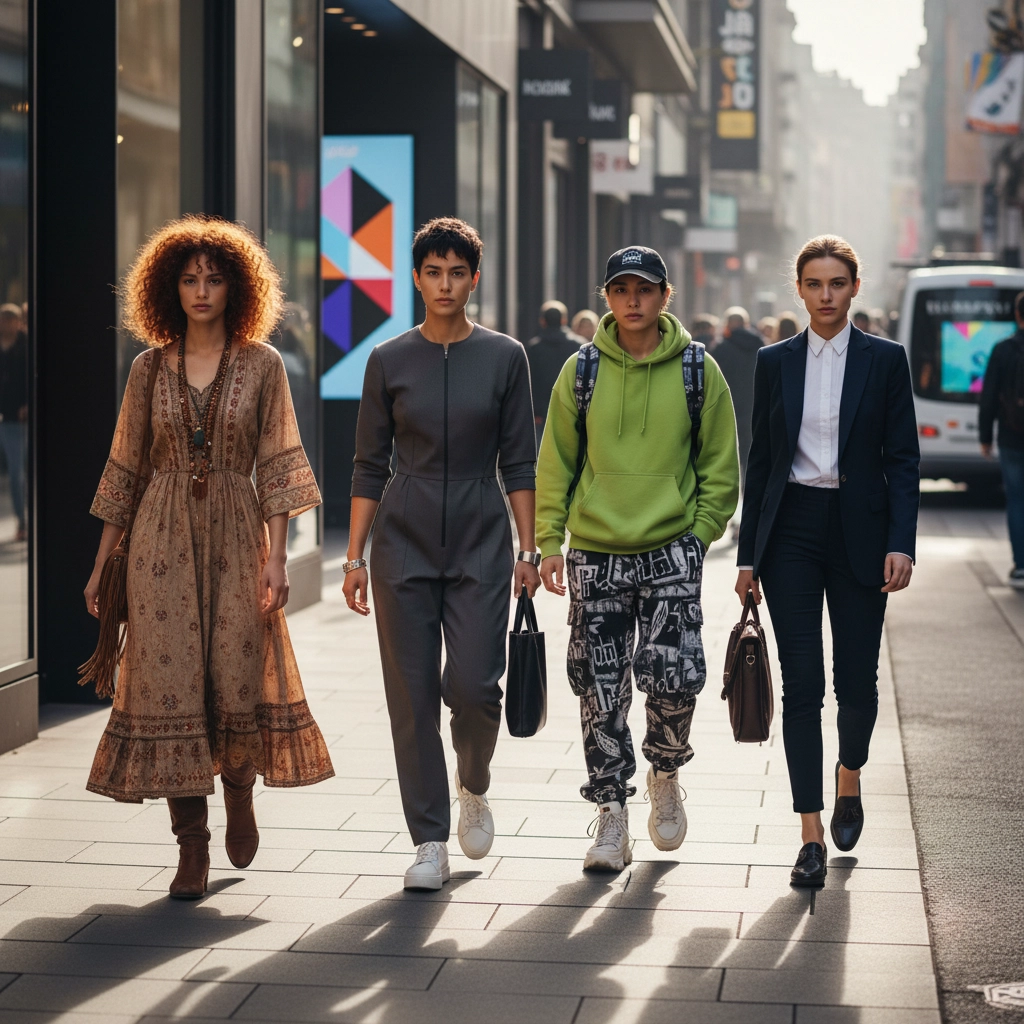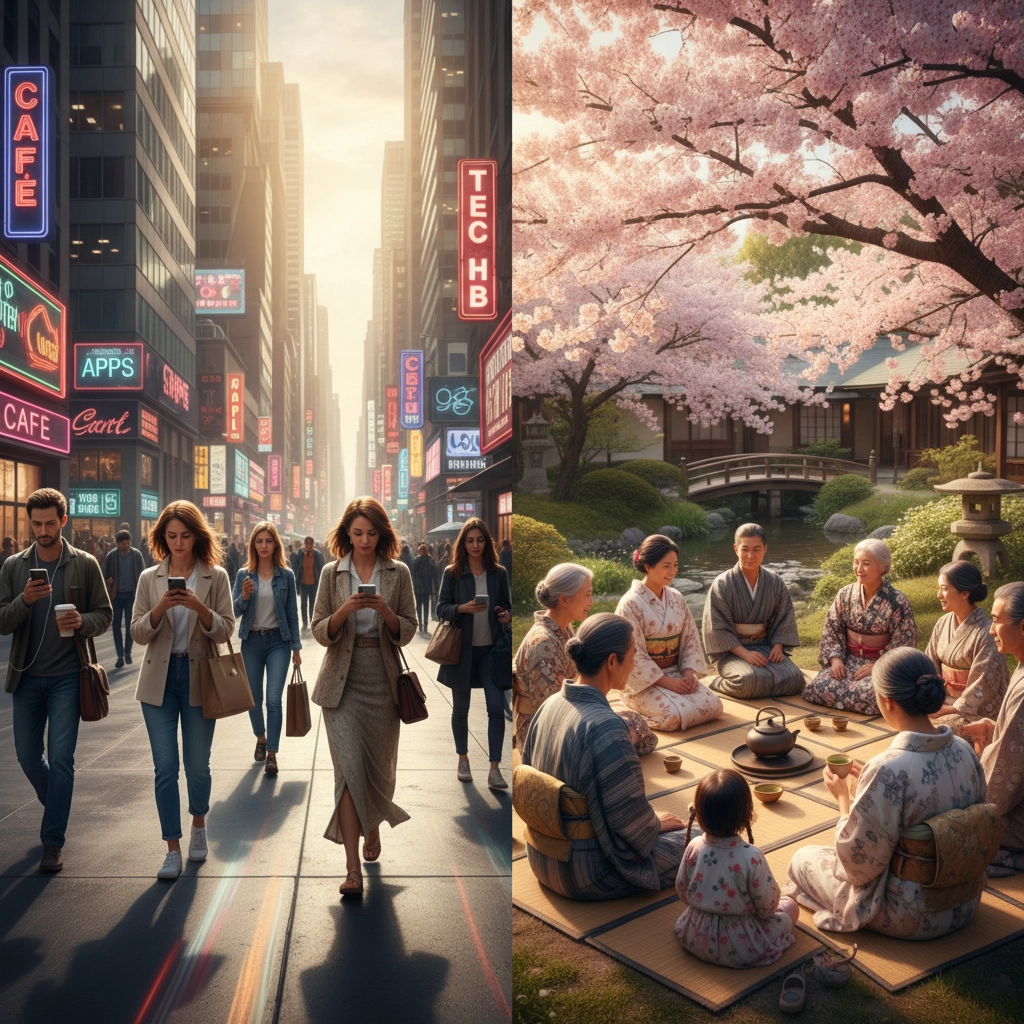Creating Spaces of Identity and Connection
Marketing is deeply intertwined with our worldview because it creates and occupies the spaces where we encounter ourselves—shaping how we perceive our identities, relationships, and place in the world.
Identity and Self-Perception: The Architecture of Aspiration
 Marketing constructs aspirational spaces where people can envision and inhabit different versions of themselves. These carefully designed spaces promote lifestyles, behaviors, and choices that reflect desirable or attainable identities, creating pathways between who we are and who we might become.
Marketing constructs aspirational spaces where people can envision and inhabit different versions of themselves. These carefully designed spaces promote lifestyles, behaviors, and choices that reflect desirable or attainable identities, creating pathways between who we are and who we might become.
These aspirational landscapes mirror a culture’s values, beliefs, and social norms. Advertisements, branding, and messaging are designed to resonate within the cultural spaces where target audiences already dwell, reinforcing or gently reshaping existing worldviews.
For example, marketing campaigns create distinct cultural geographies—emphasizing individualism in American spaces or community connection in Japanese spaces. Brands use symbols, language, and imagery that hold significance within specific cultural landscapes, building bridges between products and the spaces people call home.

Inclusivity and Representation: Expanding the Space
Effective marketing can broaden worldviews by creating inclusive spaces that represent diverse cultures, identities, and experiences. By understanding and addressing different groups’ unique needs and experiences, marketers have the opportunity to build empathetic spaces—crucial spaces in a world facing active ecological crisis.
Can marketers help address the ecological crisis and the issues that face us as a planet? Yes, especially if marketers embrace their role as architects of narrative space—crafting stories that not only foster brand-consumer connections but also bridge gaps between different perspectives and create common ground for shared human experiences.
Thoughts to Consider: The Geography of Influence
Ultimately, marketing and our worldviews exist in a profound and reciprocal relationship within shared cultural spaces. Marketing not only reflects the values and beliefs of our culture but also shapes the spaces where our perceptions and identities form and evolve.
As consumers, the next time we encounter marketing messages while scrolling through Facebook or YouTube, perhaps we can pause and examine the spaces we’re entering—asking ourselves what spaces are actually being constructed and what we think we’re choosing to inhabit.
For marketers, the opportunity lies in exploring how our messaging can genuinely create inclusive spaces that celebrate and champion the diverse ways people think, feel, and express their needs and desires—building spaces where authentic connection can flourish.
This post is grounded in the Space as Metaphor framework, which views space as “metaphor for method, moral orientation, and mode of transformation.” The framework helps us understand marketing not as mere messaging, but as the intentional creation of cultural spaces where identity formation and worldview development occur.

